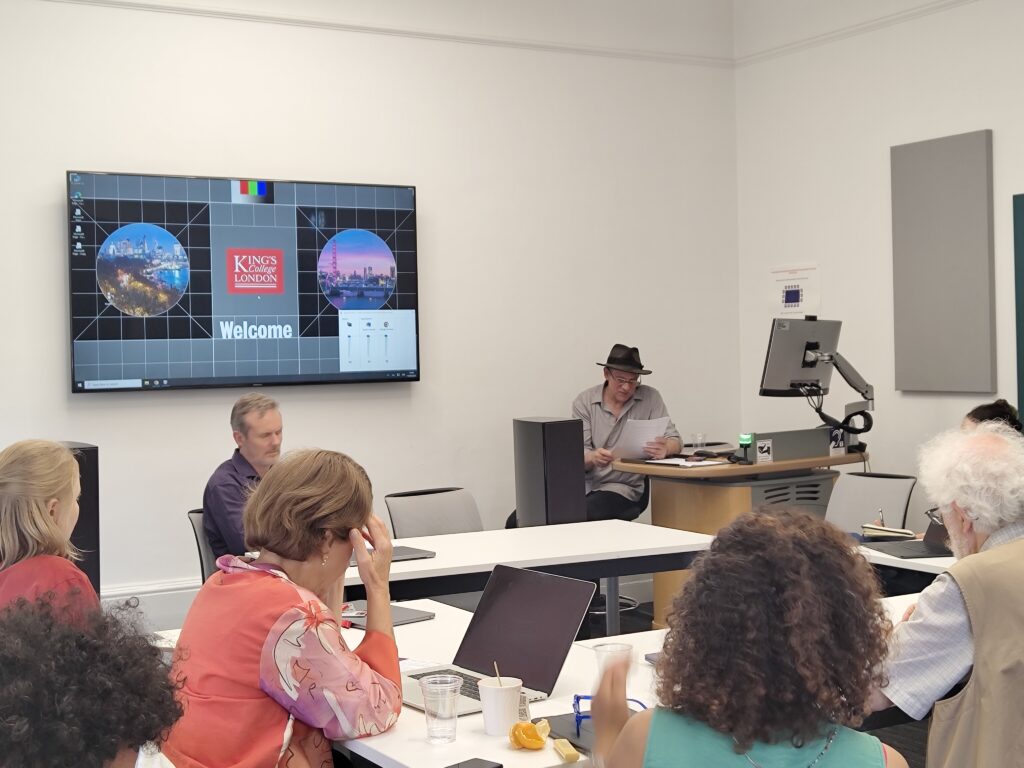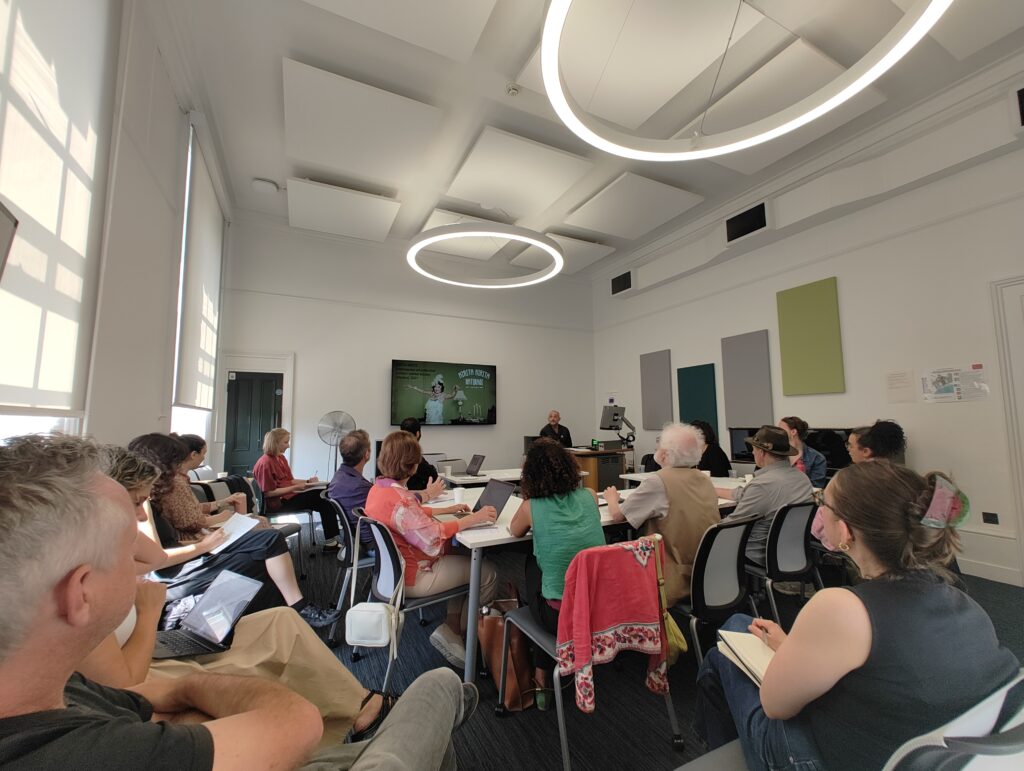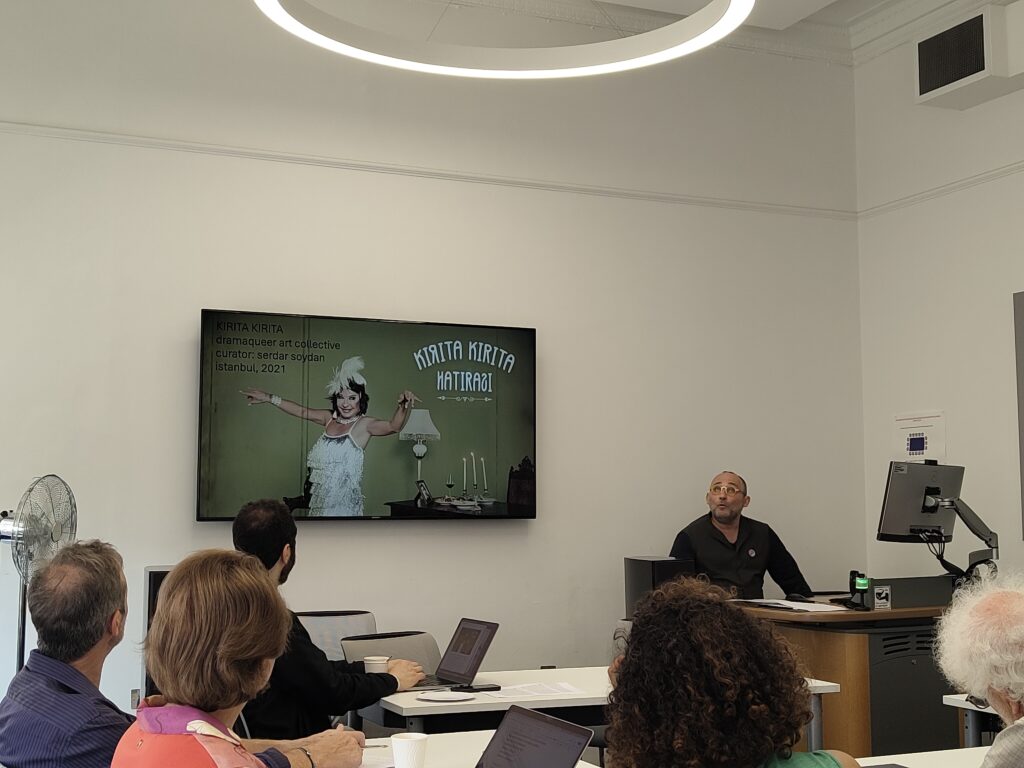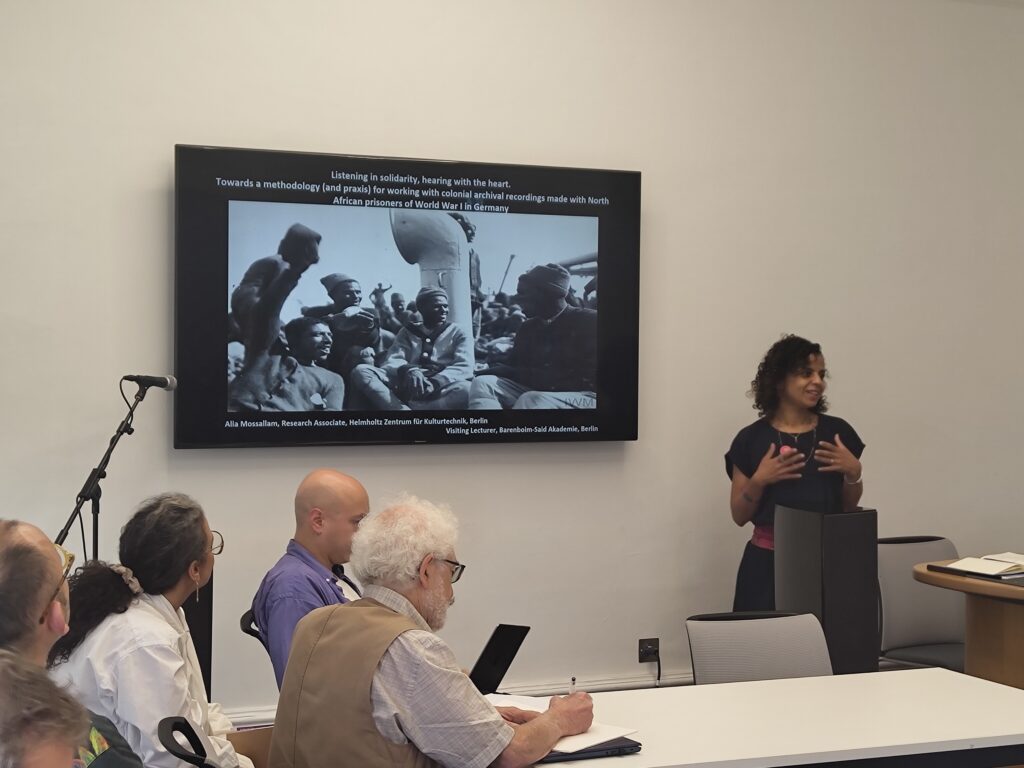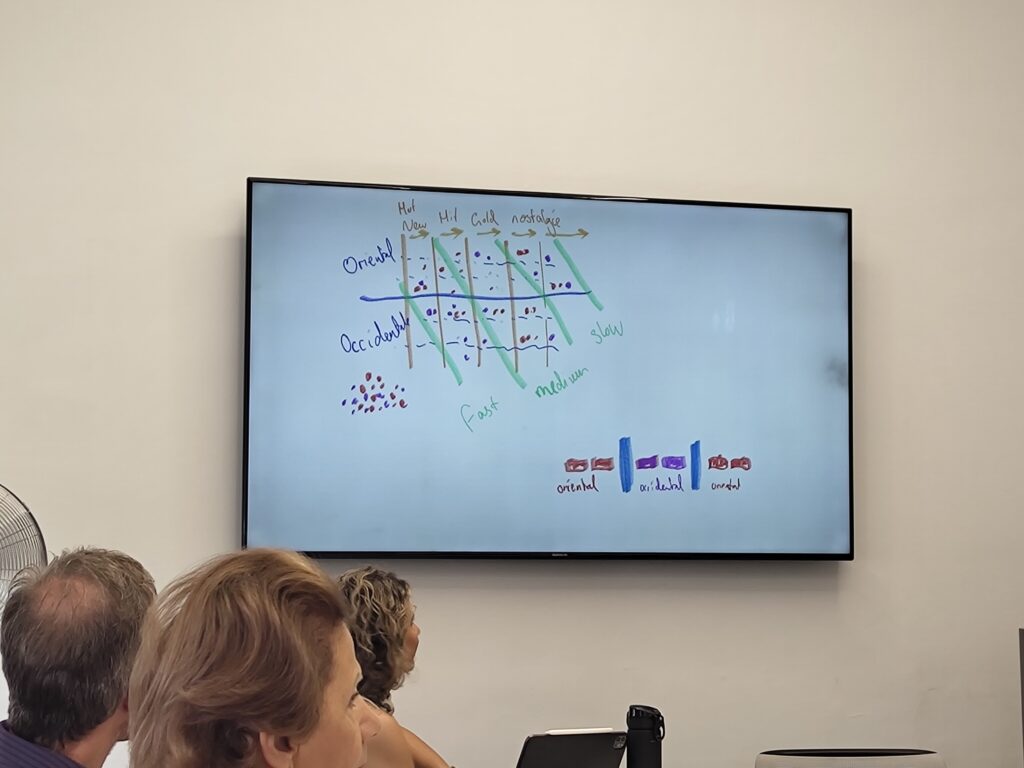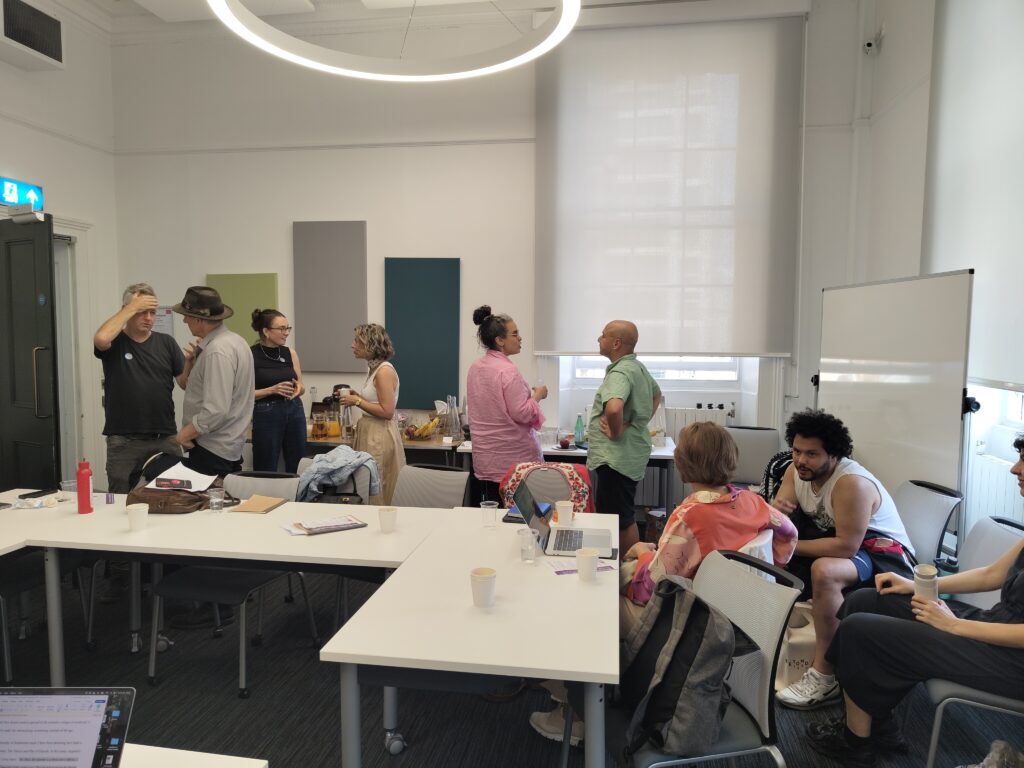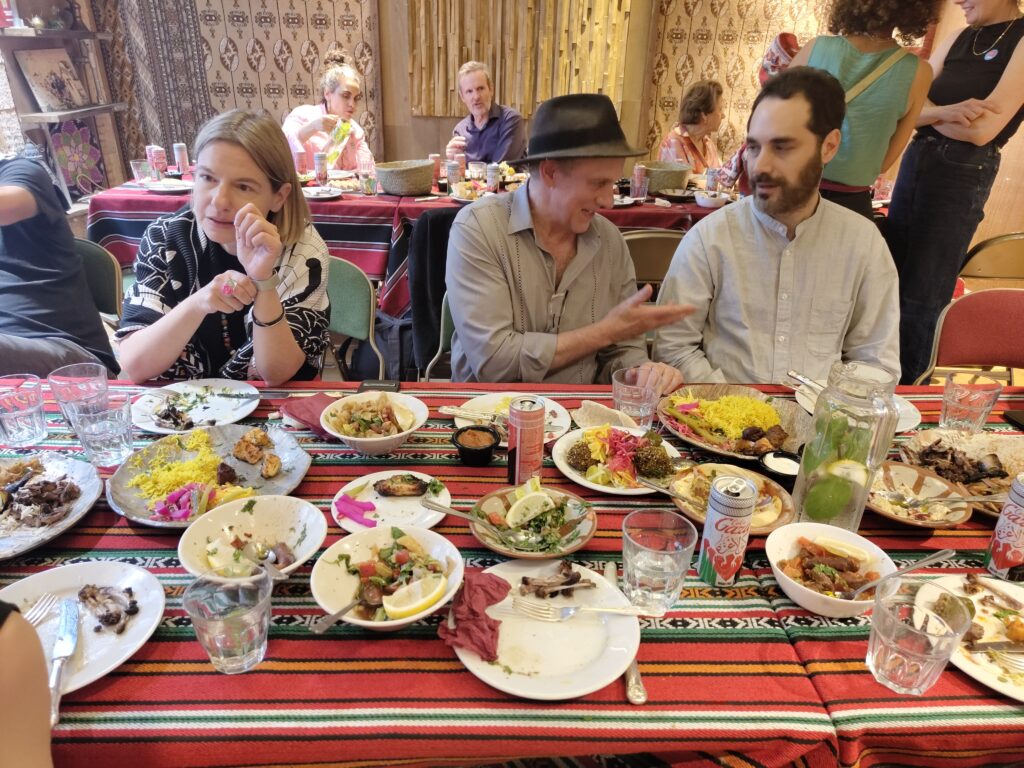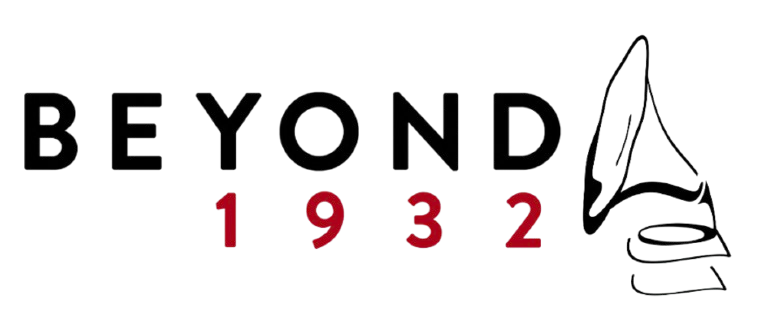June 2025 marked the first Beyond 1932 research workshop: “Sound, Archive and Performance in the Middle East and North Africa”, convened by Sophie Frankford and Yara Salahiddeen. Bringing together historians, anthropologists,(ethno)musicologists and performers, this 2-day interdisciplinary workshop explored interactions between sound, music and the archive in the MENA region. Taking seriously performers’ and listeners’ increasing engagement with the archive in recent years, the workshop sought to explore its generative potential as a basis for imagining otherwise.
We started with an expansive understanding of what an archive is – material and ideational; comprised of objects, sounds, ephemera or feelings; a site of contested power as much as source material. From there, we asked: How might archival engagement change our understanding of shifting soundworlds in the region? To what extent does the MENA region sound archive act as a locus of connected social and cultural histories? How is research into music and popular culture of the MENA region contributing to Archive Studies, especially in terms of sensory aspects of the archive? How is this shaped by the varied realities of access to sources, which are often scattered or fragmented? How might alternative modes of temporality present through the archive and disrupt established periodisations? How might thinking about the material / spatial dynamics of the archive enable us to move beyond the national frame?
The challenges of accessing and working with state archives in the region are well documented. Researchers wrestle not only with restrictive security clearances, but also the inaccessibility and destruction of archives amid financial scarcity, political upheaval and genocide. Mbembe’s argument (2002) about archives being central to the maintenance of the state, but also a threat to its very existence and legitimacy, comes to mind. Drawing on this work, as well as recent music scholarship focused on issues of repatriation and sonic afterlives, we hope to explore the archive as a site of experimentation both in scholarship and practice.
To read the workshop’s report, please go to our blog page
